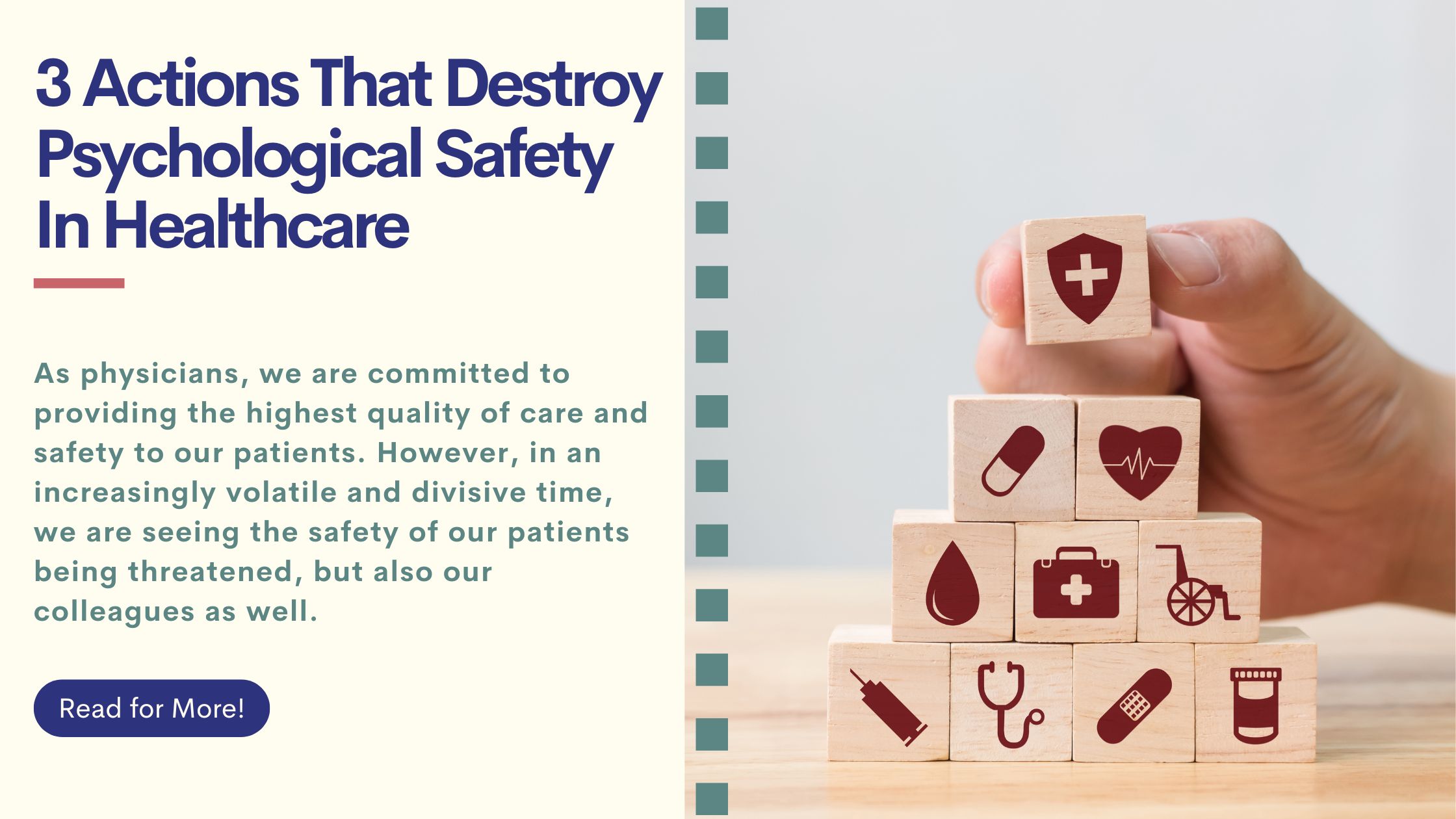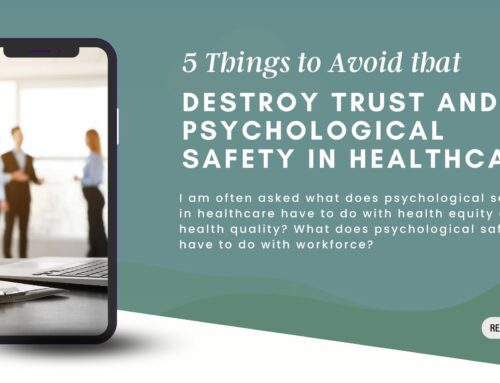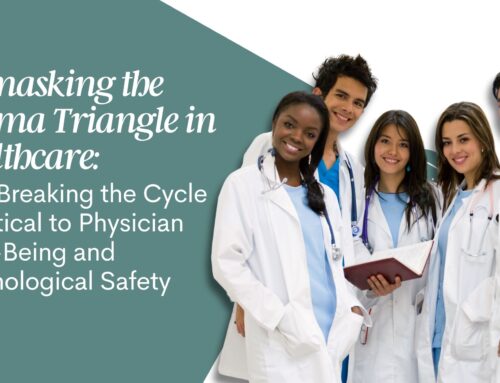
Discover how healthcare workplace culture impacts trust, reduces burnout, and enhances patient care and provider well-being!
The Role of Psychological Safety in Healthcare
Healthcare professionals dedicate themselves to patient care, but their work environment greatly affects their well-being and performance. Psychological safety plays a crucial role—it allows individuals to speak up, learn from mistakes, and contribute without fear. Without it, burnout rises, trust erodes, and patient care suffers. A strong healthcare workplace culture fosters psychological safety, ensuring that professionals feel supported and valued.
Timothy Clark’s book, The 4 Stages of Psychological Safety, identifies key elements:
- Safety to Be Included
- Safety to Learn and Make Mistakes
- Safety to Contribute
- Safety to Challenge and Report Issues
This article examines three common behaviors that destroy psychological safety in healthcare workplace culture and provides solutions to rebuild trust.
Dismissive Attitudes: Ignoring Concerns Creates a Toxic Workplace
“A colleague made inappropriate remarks toward me. When I reported it to HR, they dismissed my complaint and wrote me up for being disruptive.” – Dr. A
Ignoring concerns sends a clear message: employees’ experiences and voices do not matter. This behavior violates the safety to challenge principle, creating an unsafe work environment where misconduct continues unchecked.
Solution: Leaders must acknowledge and investigate complaints promptly. Dismissing concerns fosters distrust, while following up with action builds a culture of accountability and psychological safety.
Culture of Blame and Criticism: Stifling Growth and Learning
“In medical school, I saw classmates berated for not knowing the right answers. No matter what we did, it was never good enough. We learned to stay silent rather than ask for help.” – Dr. M.C.
A culture of constant blame discourages questions and learning, leading to defensive behaviors and fear of making mistakes. This behavior violates the safety to learn principle. In medicine, where mistakes can have life-or-death consequences, open communication is essential.
Solution: Leaders must create a healthcare workplace culture where asking questions feels safe. When they admit their own mistakes, they set an example that learning is a continuous process, not a weakness.
Lack of Empathy: Ignoring Human Needs
“After knee surgery, I needed call coverage, but no one helped. My attendings refused to give me time off, forcing me to take a 24-hour shift two days later. Without time for physical therapy, my recovery suffered.” – Dr. M.C.
A lack of empathy in the workplace isolates individuals and harms their well-being. This behavior violates the safety to be included principle, making healthcare professionals feel unsupported and undervalued.
Solution: Empathy isn’t just taught—it grows through meaningful connections. Encouraging human connections among colleagues helps them see each other’s struggles and respond with compassion. When empathy becomes part of healthcare workplace culture, trust and collaboration thrive.
Moving Forward: Creating a Supportive Healthcare Environment
Recognizing and addressing harmful behaviors is the first step toward building a safer and healthier workplace. By promoting accountability, encouraging open dialogue, and fostering empathy, healthcare organizations strengthen retention and improve patient care. Creating a culture of psychological safety ensures that healthcare providers feel valued, heard, and supported in their mission to heal others.
Stay tuned for part 2!
Create Psychological Safety in your organization. When you leave your employees feeling seen, heard, understood, valued, appreciated, and respected they will stay and make your organization their career home. Want to know more? Contact Dr. Clairborne to discuss her offerings and how she can help our leaders increase trust, safety and belonging in your organization. Learn more: https://www.mindremappingacademy.com/corporate-programs










